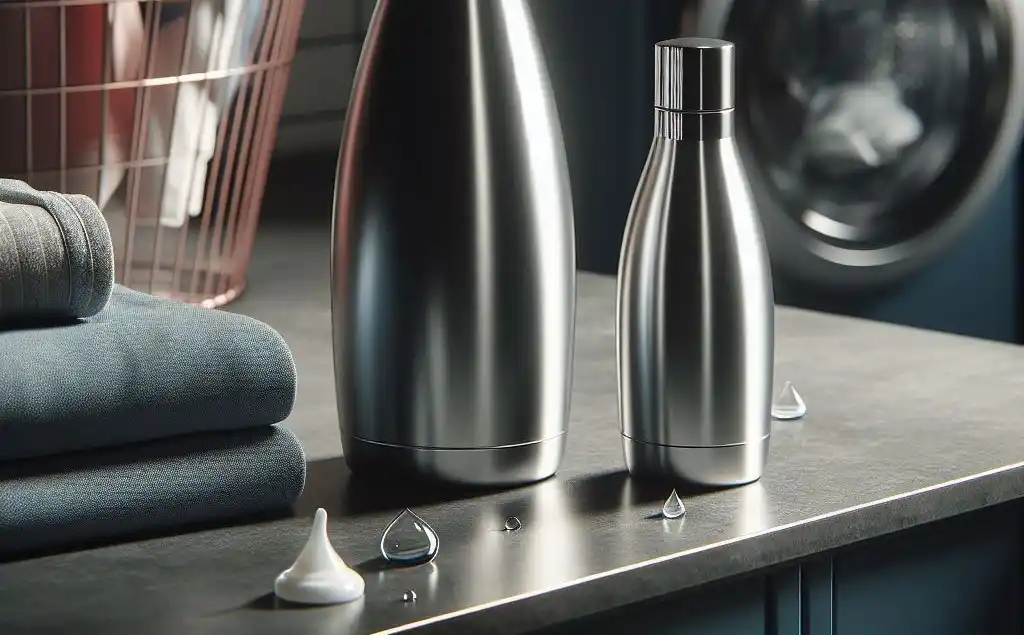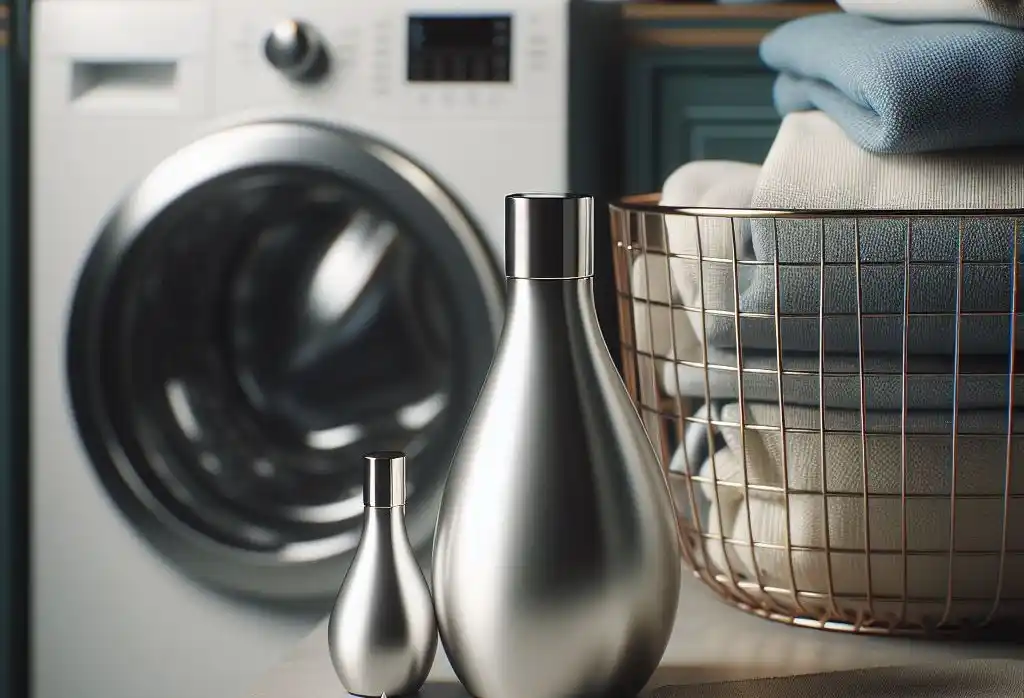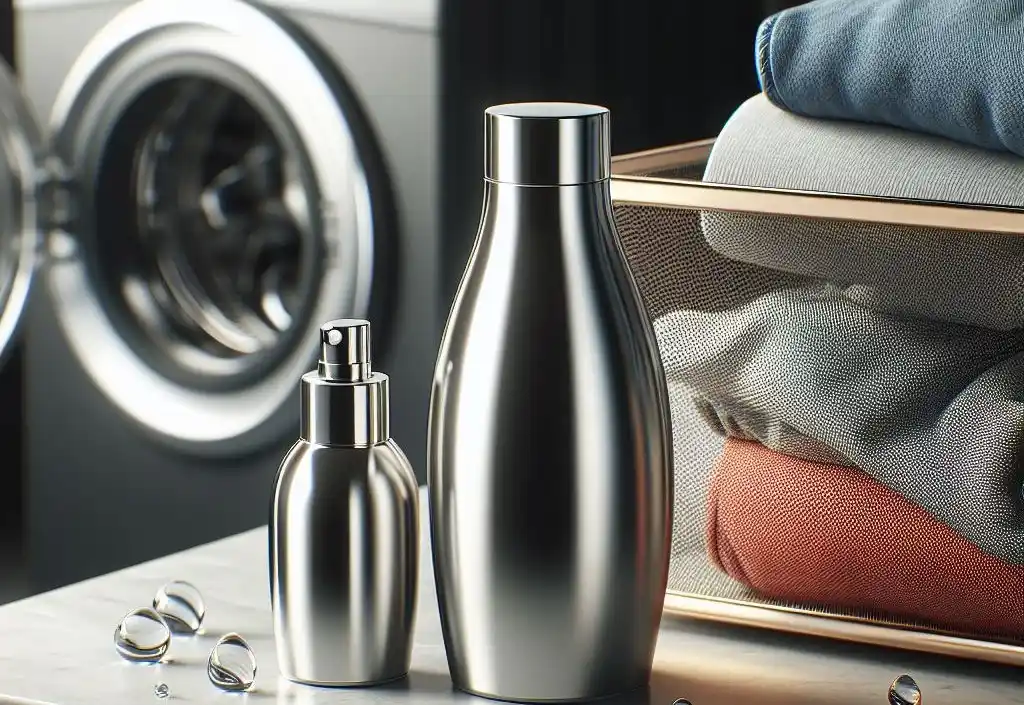Can You Use Conditioner as Laundry Detergent? Don’t Use Hair Conditioner
Have you ever run out of laundry detergent and wondered if you could use a hair conditioner instead? With both products designed to be clean and in condition, it seems like a reasonable swap. However, while tempting in a pinch, using conditioner in place of laundry detergent is not recommended.
In this comprehensive guide, we’ll cover everything you need to know about Can You Use Conditioner as Laundry Detergent, including:
- The key differences between laundry detergent, fabric softener, and hair conditioner
- Whether it’s safe to use conditioner to wash clothes
- Clever laundry hacks and homemade detergent recipes when you’re out of store-bought detergent
- Tips to keep your clothes fresh and soft without resorting to swapping products
So if you’ve ever pondered “Can I use hair conditioner to wash my clothes?”, read on for the complete low-down.
Table of Contents
Laundry Detergent vs. Fabric Softener vs. Hair Conditioner: What’s the Difference?

Before we dive into using conditioner in the washing machine, it’s important to understand what makes laundry detergent, fabric softener, and hair conditioners unique from one another.
Laundry Detergent
Laundry detergent is specially formulated to penetrate, loosen, and remove dirt, oils, stains, and residue from fabric fibers. Key ingredients include:
- Surfactants: Cleansing agents that break down grime and allow it to be rinsed away
- Enzymes: Break down protein-based stains like food, sweat, and blood
- Brighteners: Help restore brightness and vibrancy
- Fragrance: Leaves clothes smelling fresh
- Builders: Help counteract mineral deposits in hard water that can interfere with cleaning
Laundry detergents come in powder, liquid, and single pod form to suit different washing needs. Heavy-duty formulas tackle tough odors and ground dirt. Gentler “sensitive skin” varieties clean effectively while remaining mild on the skin.
Fabric Softener
While laundry detergent focuses on de-griming, fabric softeners are all about softness and static reduction. Key ingredients include:
- Cationic surfactants: Coat fabric fibers and act as a lubricant to improve feel and texture
- Fragrances: Impart a fresh, clean scent
- Quaternary ammonium compounds: Prevent static buildup by neutralizing electrical charge
When dispensed during the rinse cycle, fabric softeners penetrate clothes to leave them smooth, fluffy, soft, and static-free. Dryer sheets can also impart these softening and anti-static benefits.
Hair Conditioner
Like fabric softeners, hair conditioners are designed to make fibers smoother and more manageable. Key ingredients include:
- Cationic surfactants: Smooth down the hair cuticle
- Silicones: Coat the hair shaft to improve slip and softness
- Emollients: Lock in moisture and nourish hair
- Fragrances: Leave hair smelling fresh
So while laundry detergent, fabric softener, and hair conditioner share some similarities, they each serve a different primary purpose. Laundry detergent cleans, fabric softener softens, and hair conditioner conditions!
Can You Use Conditioner as Laundry Detergent?

Now that we know more about the differences between cleaning and conditioning products, is it safe to use a hair conditioner in place of laundry detergent?
The simple answer is no—using hair conditioner as laundry detergent is not recommended.
While it may seem like a clever swap when you’re out of Tide, hair conditioners lack the cleansing agents needed to properly wash clothes. More specifically:
- Doesn’t contain surfactants to break up dirt and oil
- Won’t activate enough suds to penetrate fabric and lift stains
- This leaves behind conditioning agents that can build up
- Can’t counteract mineral deposits from hard water
So while hair conditioner may make your clothes feel soft, it won’t get them clean. Dirt, grime, sweat, and oils will remain trapped in the fabric.
Over time, this causes dinginess, odor issues, and even skin irritation. Residues can also build up in your washing machine, promoting mold and mildew growth.
For these reasons, swapping conditioner for laundry detergent is not recommended as a long-term solution.
However, if you’re truly in a pinch with no other alternative, using a small amount of conditioner to wash a load of laundry once generally won’t cause harm. Just be prepared for subpar cleaning!
Clever Laundry Hacks When You Run Out of Detergent

While hair conditioner is best left in the shower, there are a few other handy ingredient swaps when you unexpectedly run out of laundry detergent:
Baking Soda
A natural cleaning and deodorizing agent, baking soda can be used as a laundry booster even when you have detergent on hand. When going detergent-free, add 1⁄2 to 1 cup baking soda along with vinegar or lemon juice to balance pH.
The combination helps lift stains, counteract odors, and brighten whites. Just be aware baking soda is abrasive to some fabrics like wool, silk, and spandex blends.
Borax
Like baking soda, borax tackles tough stains. It also acts as a water softener to help boost cleaning power. Use about 1⁄2 cup per large load.
Bar Soap
Grate a few bars of soap rich in oils like castile, babassu or soap nuts. Let the shavings dissolve in hot water before adding clothes. Check the lather level and rewash if not enough sudsing.
Vinegar or Lemon Juice
Help balance pH when using baking soda. Vinegar also cuts grease, acts as a rinse aid, and prevents soap scum buildup. Use 1⁄2 to 1 cup white vinegar or fresh lemon juice per wash.
Washing Soda
An alkaline helper, washing soda lifts soil, removes stains, and deodorizes when used with an acidic activator. Use around 1⁄4 cup per load.
While these homemade solutions may not deliver picture-perfect laundry every time, they can tide you over until you restock your usual detergent.
Difference Between Fabric Softener and Conditioner for Laundry

Another common question that arises is: can you use hair conditioner instead of fabric softener or dryer sheets?
Since both hair conditioners and fabric softeners are meant to coat fibers for a smooth, slippery feel, it seems reasonable to use them interchangeably.
However, while better than nothing when your Downy runs dry, hair conditioners still aren’t an ideal substitute for laundry softeners. Reasons why include:
- More prone to buildup issues: Hair conditioners tend to leave behind more residual coating than fabric softeners, increasing the likelihood of residue accumulation over time. This can lead to stiff, crunchy laundry.
- Poorer fiber penetration: Fabric softeners are designed to better penetrate clothing fibers vs. coat the surface. This allows for improved softness retention over time.
- Less effective for static control: Hair conditioners don’t contain the antistatic agents needed to neutralize cling.
So for best results, stick to formulated fabric softeners, dryer sheets or liquid softeners. Or, make your own conditioning laundry rinse with ingredients like hair conditioner mixed with white vinegar or diluted witch hazel to help cut through buildup.
Tips for Keeping Laundry Soft Without Fabric Softener
If you want soft laundry without fabric softener or conditioner, try these tips:
- Wash clothes in cold water whenever possible—this prevents fibers from getting damaged and roughed up during harsh hot washes.
- Use a gentle, high-efficiency detergent since these are less likely to leave crunchy residues.
- Line or flat dry clothing instead of machine drying to prevent over-drying fibers.
- Try wool dryer balls instead of dryer sheets—these lift laundry away from dryer surfaces to prevent static cling and maintain softness.
- Use white vinegar as a natural fabric softener during washes. Pour 1⁄2 cup into the rinse cycle.
- For static control, rub clothes with aluminum foil or use dryer balls infused with wool roving to absorb static.
- Consider homemade conditioner options like diluted hair conditioner or white vinegar rinses on an occasional basis if additional softening is needed.
Frequently Asked Questions
Can I use a hair conditioner as a detergent just once if I run out?
While not recommended long-term, using a tiny amount of hair conditioner to wash a single load of laundry in an extreme pinch should not cause major issues. Limit emergency use to 1-2 washes before replacing with actual laundry detergent. Over time, repeated conditioner use risks buildup, inadequate cleaning, and fabric damage.
How do I know if I have buildup from using hair conditioner as a detergent?
Signs your washing machine or laundry has built up from incorrect detergent use include:
- Stiff, crunchy-feeling clothes
- Lingering sour or mildewy odors in laundry
- Visible soap scum in the washer drum
- Mold or mildew growth on rubber seals
- Musty smells from the machine itself
- Abnormal sudsing during cycles
To treat residue issues from using too much conditioner, run a hot wash cycle with either vinegar OR baking soda (don’t combine, alternate instead). Scrub the washer with disinfectant and a baking soda paste afterward. Repeat as needed until build-up is removed. Consider doing a maintenance wash monthly.
Can I add hair conditioner and laundry detergent together?
Technically you can add a small amount (1-2 tablespoons) of hair conditioner TO laundry detergent for extra softness. However, it’s still not an ideal practice long term since some residue will accumulate. Stick to detergent plus a dedicated laundry softener product instead for best results.
Can I make my laundry detergent with conditioner?
While homemade laundry soap is cost-effective, keep hair conditioner out of homemade recipes. Oils, natural soap, washing soda, and borax make better bases for DIY detergents. Adding a spoonful of hair conditioner won’t drastically help or harm, but can still promote build-up faster than with true detergent. Opt for white vinegar or essential oils for softness and scent if desired.
The Takeaway: Use Proper Laundry Products for Best Results
While using hair conditioner or other improvised ingredients to wash clothes may work in the occasional pinch, making it a habit is problematic. Residue accumulation, inadequate cleaning, funky odors, and even appliance damage can occur over time without proper detergent.
For clean, fresh laundry without hassles, always:
- Stock up on laundry detergent so you never unexpectedly run out
- Use a laundry detergent formulated specifically for washing machines
- Boost it’s cleaning action with laundry boosters like borax or washing soda if desired
- Add a dedicated laundry softener like liquid Downy or wool dryer balls for conditioning
- Skip the hair conditioner for showering only!
Using the right cleaners for laundry makes all the difference. But when desperate, give some of the handy ingredient swaps mentioned here a try before resorting to the bottle of Pantene off the shower shelf!
The Bottom Line
While using hair conditioner rather than laundry detergent seems reasonable enough when your bottle runs empty, it won’t properly clean dirty clothes when used regularly. Hair conditioners lack the dirt-removing surfactants, water softeners, and cleaning enzymes needed to lift stains and grime away from the fabric.
This leaves grease, B.O., and residues trapped against clothing fibers even if clothes feel softly conditioned temporarily from silicones and oils.
Over time, hair conditioners used as stand-in detergents compromise the cleaning ability, freshness, and longevity of clothes while risking buildup. For occasional emergency use of a tiny amount, it likely won’t cause harm. But for regular washing, stick to using hair conditioners for their intended purpose—conditioning hair!
When your Tide runs out unexpectedly, extend it further with our natural laundry booster suggestions like baking soda and vinegar until the next detergent restock. Or try your hand at DIY soap nut or Castile soap laundry blends. Just please—leave the hair conditioner where it belongs…in the shower!








